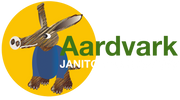Modern Slavery & Human Trafficking Statement
This statement is made as part of Aardvark’s commitment to eliminating the exploitation of people under the Modern Slavery Act 2015 (the Act). It summarises how Aardvark operates, the policies and processes in place to minimise the possibility of any problems, any risks we have identified and how we monitor them, and how we train our staff.
Modern slavery can take many forms, including the trafficking of people, forced labour, servitude and slavery. We take our responsibility for supplying staff extremely seriously and ensure our employees are alert to the signs of exploitation, in order that we may take the necessary action promptly and effectively should it be identified.
1 Our Business
Aardvark Janitorial Supplies (“Aardvark”) is a supplier of janitorial products to businesses. We are committed to adhering to all legislation surrounding our industry and Aardvark acknowledges responsibility to the Modern Slavery Act 2015 and will ensure transparency within Aardvark and with suppliers of goods and services to the business.
This aim of this policy statement is to communicate our responsibilities and highlight the risks that modern slavery and trafficking pose to our business, our customers and our supply chain.
Aardvark Limited is a UK registered Limited Company that began trading in 2001 and operates out of warehouse premises in Warrington.
1.1 Who we work with
All of the Customers and Suppliers that we work with are known to and identified by our staff. We provide a wide range of janitorial supplies across the NorthWest of England
2 Our Policies
Aardvark has a modern slavery policy available on request.
In addition, Aardvark has the following policies which incorporate ethical standards for our staff [and our suppliers]:
· Code of Ethics
· Anti-Bribery & Corruption Policy
· Whistle-blowing policy
2.1 Policy development and review
Aardvark’s policies are established by the Managing Director, based on advice from HR professionals, industry best practice and legal advice, and in consultation with staff. We review our policies annually, or as needed to adapt to changes.
3 Our Processes for Managing Risk
In order to assess the risk of modern slavery, we use the following processes with our suppliers:
• We conduct audits before entering into a commercial relationship with any business where there is the potential for risk. These audited businesses form the basis of our preferred supplier list.
• We review the potential for risk at regular intervals, including the possibility of re-auditing a supplier or conducting spot checks.
After due consideration, we have not identified any significant risks of modern slavery, forced labour, or human trafficking in our supply chain. However, we continue to be alert to the potential for problems.
Additionally, we have taken the following steps to minimise the possibility of any problems:
• We reserve the right to conduct spot-checks of the businesses who supply us, in order to investigate any complaints.
• We require the businesses we work with to address modern slavery concerns in their policies.
• We collaborate with our suppliers in order to improve standards and transparency across our supply chain.
• Only the Managing Director, who has undergone appropriate training for assessing modern slavery risks in the supply chain, is authorised to sign contracts and establish commercial relationships in any area where we have identified the potential for risk.
Our staff are encouraged to bring any concerns they have to the attention of management.
4 Our Performance
Based on the potential risks we have identified, we have also established the following key performance indicators, which are regularly assessed by the Managing Director:
• the effectiveness of enforcement against suppliers who breach policies
• the amount of time spent on audits, re-audits, spot checks, and related due diligence
• the level of modern slavery training and awareness amongst our staff
We carefully consider our indicators, in order to ensure that we do not put undue pressure on our suppliers that might increase the potential for risk.
5 Our Training
All of our staff receive training and support that is appropriate to their role. In particular:
• detailed training in identifying and resolving concerns around modern slavery and human trafficking.
• they undertake training courses that include guidance around modern slavery and human trafficking, as well as other wider human rights issues.
• All of our staff receive awareness-raising information around issues involving modern slavery and human trafficking, so that they can bring any concerns they have to the attention of management.
As part of this, our staff are encouraged to discuss any concerns that they have.
Training is refreshed annually.
This statement is published in accordance with section 54 of the Act and relates to the fiscal year 06 April 2022 to 05 April 2023. It was approved by the Managing Director on 07 April 2022.
Rebecca von Dolor
Managing Director
- Choosing a selection results in a full page refresh.







